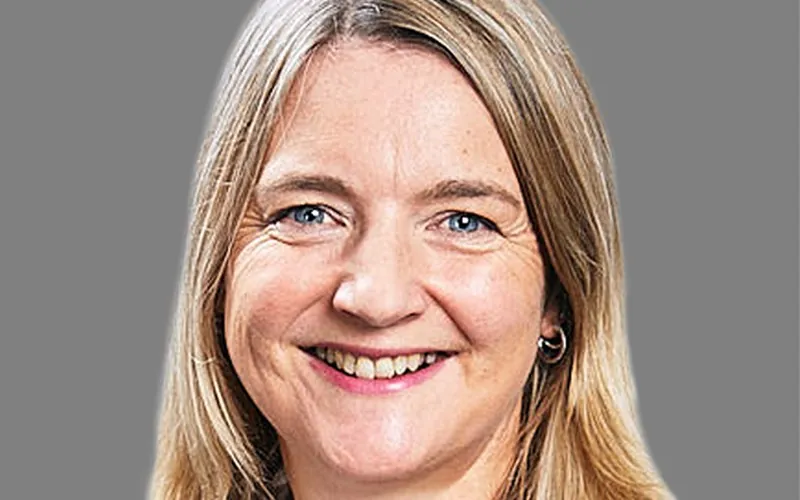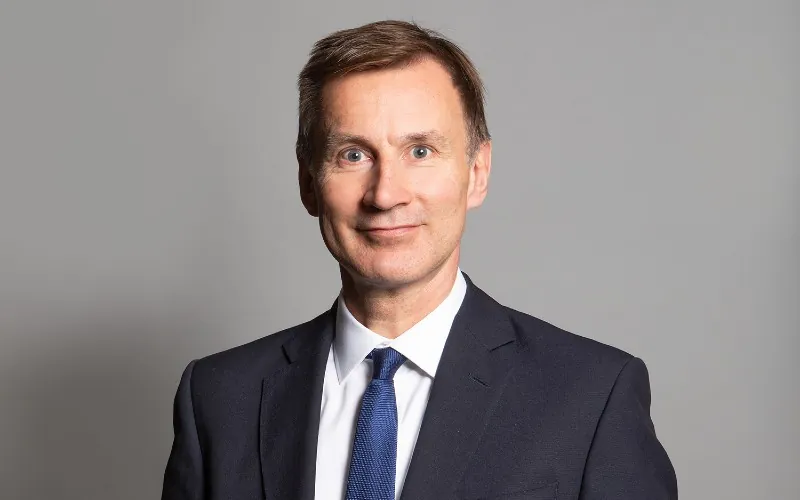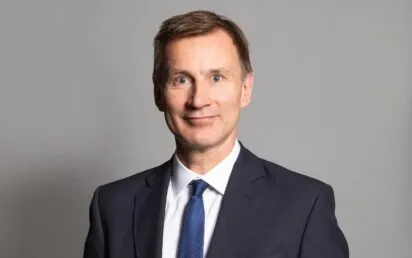A second cut to national insurance grabbed the headlines in Jeremy Hunt’s Spring Budget as speculation grows of a general election in the autumn.
The Chancellor claims this will put money back into the pockets of employees and self-employed people, while he also unveiled a ‘British ISA’ to encourage more people to invest in UK assets.
There was also £3.4 billion of new investment in NHS digitisation as well as a doubling of funding for the Alan Turing Institute, the national hub for data science and artificial intelligence.
Meanwhile the VAT threshold for small businesses will be extended by £5,000 to £90,000.
What did the tech sector and wider business support landscape make of the government’s fiscal plans?
Alan Turing Institute
The Chancellor announced a doubling of funding for the Alan Turing Institute, the national hub for data science and artificial intelligence, with an additional £100 million spread over five years going towards healthcare, protecting the environment and national defence.
“The Chancellor’s commitment to double government funding for the Alan Turning institute over the next five years is yet further evidence that the UK is moving to position itself ahead of its neighbours as the destination for AI-led innovation in Europe,” said Alois Reitbauer, chief technology strategist at Dynatrace. “It’s recent statement that the UK intends to adopt a flexible approach to AI regulation was a clear sign that the government will reduce barriers and unnecessary red tape for businesses looking to invest in AI.
“Today’s Budget announcement takes this one step further, demonstrating a commitment to encouraging investment in research and supporting the development of new use cases for AI. These measures send a clear signal that the UK is open for business and is ready to support, rather than hinder those firms looking to invest in shaping our AI-driven future.”
NHS digitisation, life sciences & public services
Hunt announced £3.4bn of new investment in NHS digitisation over the three years to 2028/29 to “reform the way the NHS works”, claiming that this doubles existing investment.
The Health Service will also receive £2.5bn in “extra funding for day-to-day activities” in 2024/25.
“It’s really encouraging news from the government in today’s Budget announcing its intention to fund an NHS multi-billion productivity plan and to make the NHS the largest digitally integrated healthcare system in the world. It has been a long time coming, but we think this now signifies that the government finally understands the size of the task ahead and that enabling the end-to-end digitisation of patient records, extends beyond just implementing EPR systems – as good a step as they are,” said Jon Pickering, CEO of Mizaic.
“To deliver on this commitment of going truly paperless, Trusts should now get the government support they need to digitise the patients’ history as a priority. This will digitally enable key clinical information for improved patient care, saving the NHS billions in the process of storing and moving paper records around.
“But there is clearly a lot of work needed to put this into action and help individual NHS Trusts actually understand how they can unlock the savings being suggested. We will continue to work with Trusts to help unlock these benefits as the funding is made available.”
Darren Dalrymple, head of Scotland at xDesign, said the £3.4bn investment was “encouraging” and “presents a huge opportunity for tech companies to develop innovative AI solutions that can play a key role in modernising NHS IT infrastructure”.
“Quality and transparent data that is underpinned by an ethical framework will prove key,” he added. “Getting this right will also ensure greater resilience against AI-powered cybersecurity threats and other potential breaches of patient confidentiality. Any new digital infrastructure that’s built for the NHS – whether AI powered or not – will need to be done with an element of future proofing in mind.
“The COVID-19 pandemic was a watershed moment that signposted us to how technology can be harnessed to connect people to vital services. It’s now on the private and public sector to come together to ensure we create a robust digital infrastructure for public sector institutions that is efficient, resilient and puts service users front and centre now and in the future.”

Gren Paull (pictured above), CEO at Lilli, said the technological advancements should be mirrored within the social care sector. “Once again, social care did not make the cut and we need to start treating the NHS and the social care sector as one health ecosystem, and with the same parity,” he said.
Hunt had already pledged ‘significant’ investment into the UK’s life sciences and manufacturing sectors – the £360 million package he unveiled earlier this week is a combination of government and industry investment – while the Treasury has announced an £800m investment to promote the integration and adoption of technology within public services.
Mark Boost, CEO of Civo, said he doubted UK startups would see the benefits of these eye-catching funding announcements. “The multiple tech projects in the £800 million public sector productivity package are of particular concern. Time and again I have experienced government tenders that essentially shut out tech providers that are not of the scale of the Big Tech ‘hyperscale’ providers or other large operators,” he warned.
“I saw nothing here to convince me that the same will not happen again. I would urge the government to make the process for allocating this money as transparent and accessible as possible, opening up opportunities for homegrown, emerging providers to support the operation of the public sector.”
British ISAs
Hunt said the introduction of a ‘British ISA’ would “encourage more people to invest in UK assets”.
Individual Savings Accounts allow people to invest £20,000 a year without paying tax on interest or returns. A consultation is now underway – lasting until 6th June – which would allow the investment of an extra £5,000 into UK equities.
Andy Mielczarek, founder and CEO of SmartSave – owned by Chetwood Financial – welcomed the move: “It’s only right that the Chancellor focuses on helping people rebuild and grow their savings after years of high inflation.
“However, while this is generally a positive move, there is still an awful lot to be done to empower people to effectively save, invest and achieve their financial goals. ISAs are just one solution of many, so we need the government to broaden the scope of its policies to include the wider savings market.”
National insurance
The Chancellor cut national insurance for employees and the self-employed by a further 2p.
Following a 2p cut to Class 1 national insurance – paid by employees earning between £12,570 and £50,270 – in the Autumn Statement which came into effect in January, he has reduced it by the same margin to 8% from April – equating to a 4% drop in just three months.
Last autumn national insurance for the self-employed was cut from 9% to 8%, due to come into effect in April. Now a further two percentage points will be stripped from it on that date, taking it down to 6%.
However income tax rates and thresholds remain untouched.
“The Chancellor was under pressure to deliver tax cuts and while this wasn’t forthcoming for businesses – with some hoping there would be a reduction to corporation tax signposted – taxpayers will welcome the national insurance cuts announced,” said Angela Cross, managing partner at BDO in the North West.
“Despite being pitched as a Budget for long-term growth, there was very little for business, with the only obvious winner being the creative industries.”
Richard Godmon, tax partner at Menzies LLP, said the Budget was “largely a case of too little, too late for most businesses”.
“The Chancellor needed to use today’s announcements to shore up the stuttering UK economy. A roaring success it was not,” he said. “While the headline announcement, a 2p cut to the National Insurance contribution rate, is clearly aimed at winning over disgruntled voters, many still won’t be better off due to the freeze in tax band thresholds – a measure brought in when the PM Rishi Sunak was Chancellor.
“And as with last November’s Autumn Statement, it’s disappointing to see the Chancellor largely neglect British businesses with today’s measures. No such cut in the NI rate was announced for employer contributions, for example – a measure that would have been welcomed by struggling businesses in the retail and hospitality sectors especially.”

Sinéad McHale (above), CEO at Satago, cast doubt on whether the Budget would woo SMEs leaning towards a Labour government when a general election is called. Some commentators are still claiming the possibility of a snap election in May, while others say the autumn is now more likely.
“The Budget provided a crucial opportunity for the government to re-engage with SMEs, and offer practical measures that could alleviate some of the risks they face in doing business,” she said.
“However, while there were positive steps, SMEs will be conscious of the government’s motive to win favour ahead of the election. There are still many problems at bay despite these measures, indicating the Chancellor could have gone further to support better access to capital for SMEs.”
Lily Megson, policy director at My Pension Expert, said “cutting income tax would have cast a much wider net and ensured that pensioners – who pay income on their pensions in retirement – also benefited from a savings boost”.
“Given the party is lagging behind in the polls and Hunt needs policies that appeal to as many voters as possible, choosing NI cuts over income tax cuts seems a misstep,” she added.
VAT threshold
The annual revenue threshold from which small businesses must register to begin charging VAT has been increased from £85,000 to £90,000.
Mairead Warren de Burca (below), head of indirect tax and managing director at Alvarez & Marsal Tax, responded: “If the Chancellor’s aim is to support smaller or growing business with the surprising announcement of a VAT registration threshold increase to £90k, he is unlikely to succeed, given this is the first increase in seven years and well behind inflation.
“Historically, the VAT registration threshold would increase on an annual basis increasing from £48k in 1996, to £85k in April 2017, where it has remained static until today’s announcement. However, it is still the highest VAT registration threshold in Europe, and there was some rumouring that it might even reduce so as to pull smaller businesses into the VAT regime so at least the Chancellor did not seek to do that.
“The ‘cliff edge’ that is the VAT registration threshold remains in place, meaning that whether a business decides to grow or remain static continues to be influenced by the VAT registration threshold.”

James Robson, CEO of FundOnion, said “business leaders will certainly feel left out in the cold and undervalued by the Chancellor at a time when government support and investment in UK small business growth is vital”.
“Businesses need a Chancellor that supports long term economic growth, enterprise, and innovation, and is prepared to provide tax relief and incentives alongside greater access to alternative finance for quicker and easier funding,” he said. “The ‘small gestures’ that were tabled are not enough to make a difference in the short term, let alone the long term. This was certainly a wasted opportunity to keep businesses on side, especially at a time when their heads are being turned by Labour in the run up to the election.”
Wider policies
Craig Roberts, head of drones at PwC UK, welcomed the government’s pledge to invest in drones for incident response in emergency services.
“The unique perspective offered by drones can assist decision making at critical incidents, increase the speed of deployment, reduce costs, and enhance data collection and quality. However, it is important to note that these benefits will not be fully realised simply by buying drones, training pilots and putting governance in place,” he said.
“The government should give equal focus to ensuring that drone captured data is effectively processed, centrally stored and fully integrated. We often see drone investments fail to deliver the expected benefits due to a focus on capturing data rather than on the ultimate data use and integration with existing workflows and systems.”

Lewis Z. Liu (above), CEO Of Eigen Technologies, said he was “disappointed” that the government has not reversed the cuts to the UK’s R&D tax credits regime: “These cuts act as a tax on founders and have already damaged the UK’s successful tech ecosystem that provides investment and high-paying jobs, and seriously undermines the government’s ambition of making the UK a technology and science superpower by 2030.”
Sam McArthur, partner at Praetura Investments, said British businesses are at a “financing bottleneck”. He reflected on the Budget: “It’s encouraging to see the Chancellor reversing changes made in his Autumn Statement to the qualifying criteria for high-net-worth individuals and self-certified sophisticated investor exemption. These groups are dynamic backers of early-stage, high potential businesses, and it’s crucial they’re empowered to support our small business ecosystem. However, there’s still work to be done to address inequality of funding between the North and the South.”
The earnings threshold for child benefit has been raised from £50,000 to £60,000, while a windfall tax on the profits of oil and gas companies has been extended until 2029.
Capital gains tax has been reduced for the higher rate of property from 28% to 24%.
The non-dom tax break for rich foreign residents in the UK has been abolished. However they will not pay tax on foreign income and gains for the first four years that they are resident in the UK.
Duty on alcohol has been frozen, while the 5p cut in fuel duty has been extended; new taxes on vapes will come in as well as higher taxes for business class flights.
My Mentor: We seek help in our personal lives – why should it be different at work?


